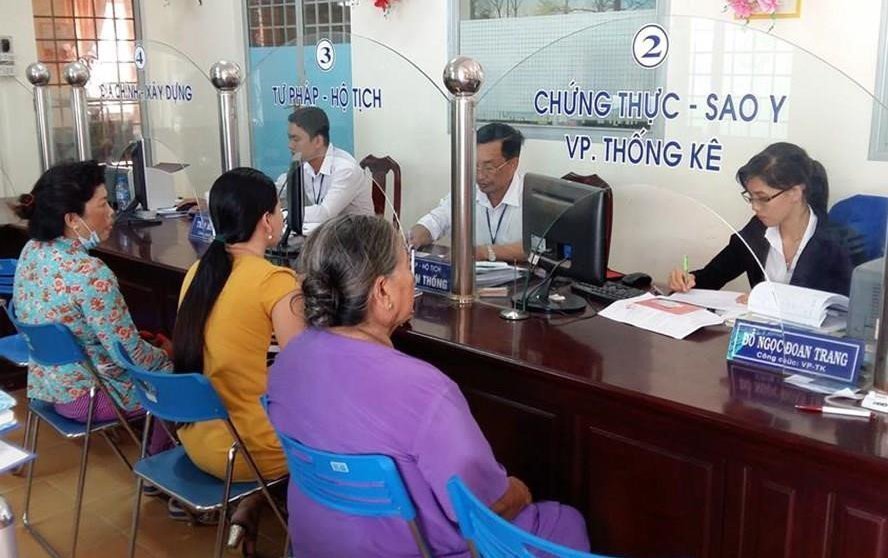
The MHA released a Code of Conduct for cadres, civil servants and public employees of the ministry, with many things that must not be done. It says employees must wear polite clothes, have neat hair, and wear shoes or sandals with back straps. They must not wear no-collar T-shirts or jeans. Women’s clothes need to be discreet, with skirts reaching above the knees.
The detailed principles on the clothes MHA’s civil servants can and must not wear have stirred controversy. In fact, many other ministries and local authorities had previously released codes of conduct in workplace.
Ministries
The Code of Conduct released by the Ministry of Natural Resources and the Environment (MONRE) on February 6, 2020 also mentions the requirements on civil servants’ dressing.
“When performing their missions, civil servants and public employees must dress neatly and politely, wear shoes or sandals with back straps. Clothing must be suitable to the nature of work, the typical characteristics of the profession and the national fine customs and traditions. The civil servants in specific sectors that need specific costumes follow specific regulations,” the Code of Conduct says.
The Ministry of Education and Training (MOET) also requires polite dressing in schools, but doesn’t set detailed requirements on patterns and styles of clothing.
In the Code of Conduct in Preschool, General Education and Continuing Education Establishments released in April 2019, the ministry requires managerial officers and teachers to dress politely.
Students are required to wear clean and neat clothes, suitable to their age and educational activities. Their parents and visitors to the schools must wear attire suitable to an educational environment.
When releasing the Code of Civilized Tourism behaviors, the Ministry of Culture, Sports and Tourism (MCST) wants to introduce standard regulations to guide the behaviors, attitudes, habits and civilized manners to organizations and individuals when participating in tourism activities.
The ministry gives general guidelines on clothing, with no specific requirements on the materials of clothes. “Use polite, appropriate clothing when traveling; wear serious clothes when visiting place of worship, religion, martyr cemeteries and attending traditional festivals,” the document reads.
As for accommodation facilities, the ministry requests officers to wear polite, neat, clean and appropriate clothes suitable to the jobs; and have specific uniforms for each division. Traditional costumes are encouraged.
Meanwhile, the Ministry of Health only requests officers to "wear discreet clothing and respect patients when examining patients".
Localities
Regarding the conduct for cadres, civil servants, public employees and workers in agencies, Hanoi requires polite office clothes and neat hair.
As for the code of conduct in public places, Hanoi only requires polite dress suited to the circumstances and society’s standards.
Before MHA released the controversial code of conduct which says employees must not wear jeans at work, Thua Thien-Hue province also stirred up the public when it asked all civil servants and public employees to wear traditional long dress on the first day of the week and on holidays, commencing in September 2020. Men were requested to wear five-piece dress.
This province sets relatively detailed requirements on the behavior of civil servants, public employees and workers at administrative agencies and non-business public units in the locality.
When performing their duties, civil servants must wear neat and polite clothes, and shoes or sandals with back straps. The dress code is as follows:
Men have to wear trousers, shirts and men's suit, while women wear traditional Ao Dai; women's suits; trousers and shirt.
Female employees at non-business public divisions in the province are required to wear an Ao Dai on every Monday.
In HCM City, when performing their duties, civil servants must wear polite clothes, have neat hair, and wear shoes or sandals with back straps.
Men have to wear trousers and a shirt, and women can wear trousers, long skirts (reaching above the knees), shirts with sleeves; suits; or traditional dress.
B. N

Ministry of Home Affairs asks civil servants not to work in jeans
The Ministry of Home Affairs (MHA) has told civil servants and public employees to dress properly at work, with no jeans.

Teachers faced strict requirements on certificates in last three months
In February, the Ministry of Education and Training (MOET) released several circulars on teacher appointments and rankings, and necessary certificates.